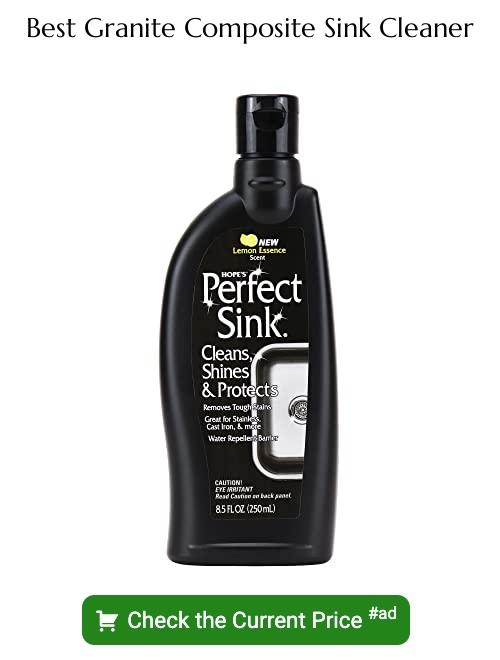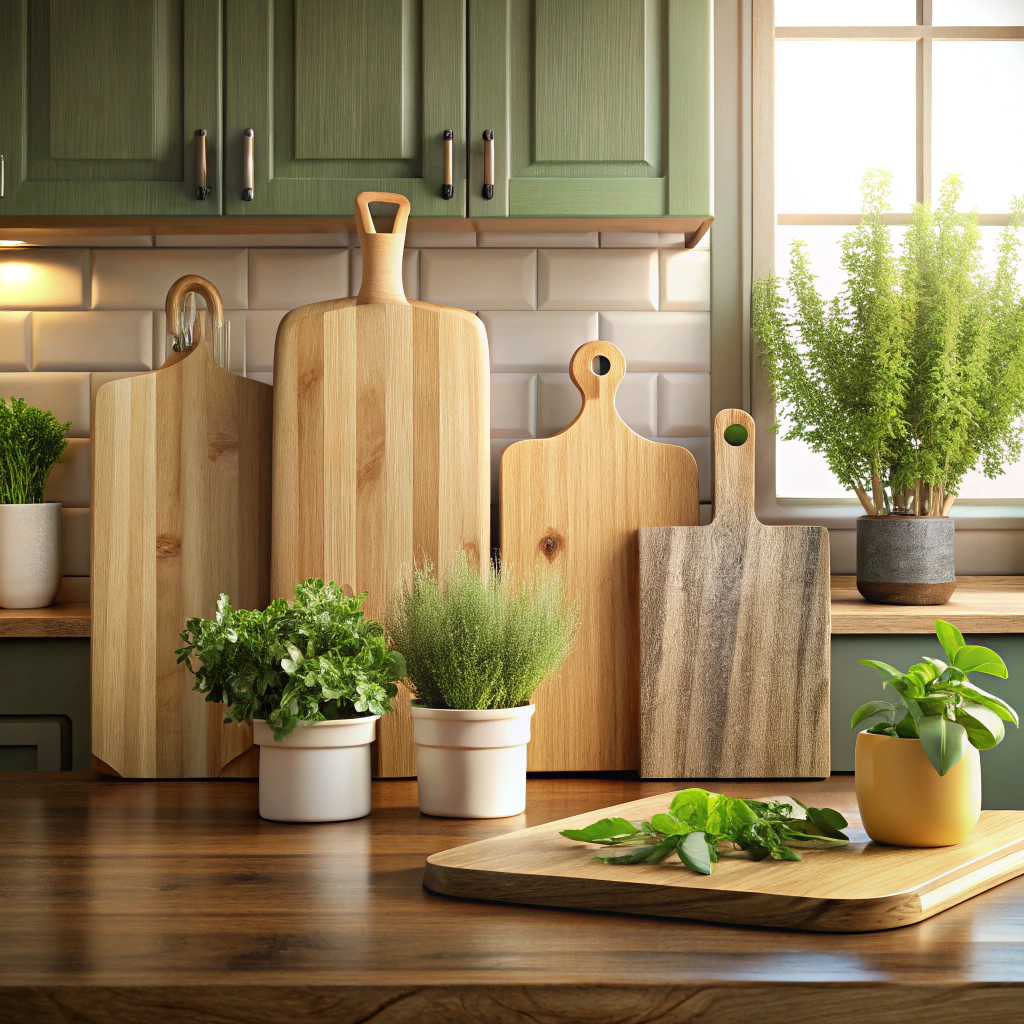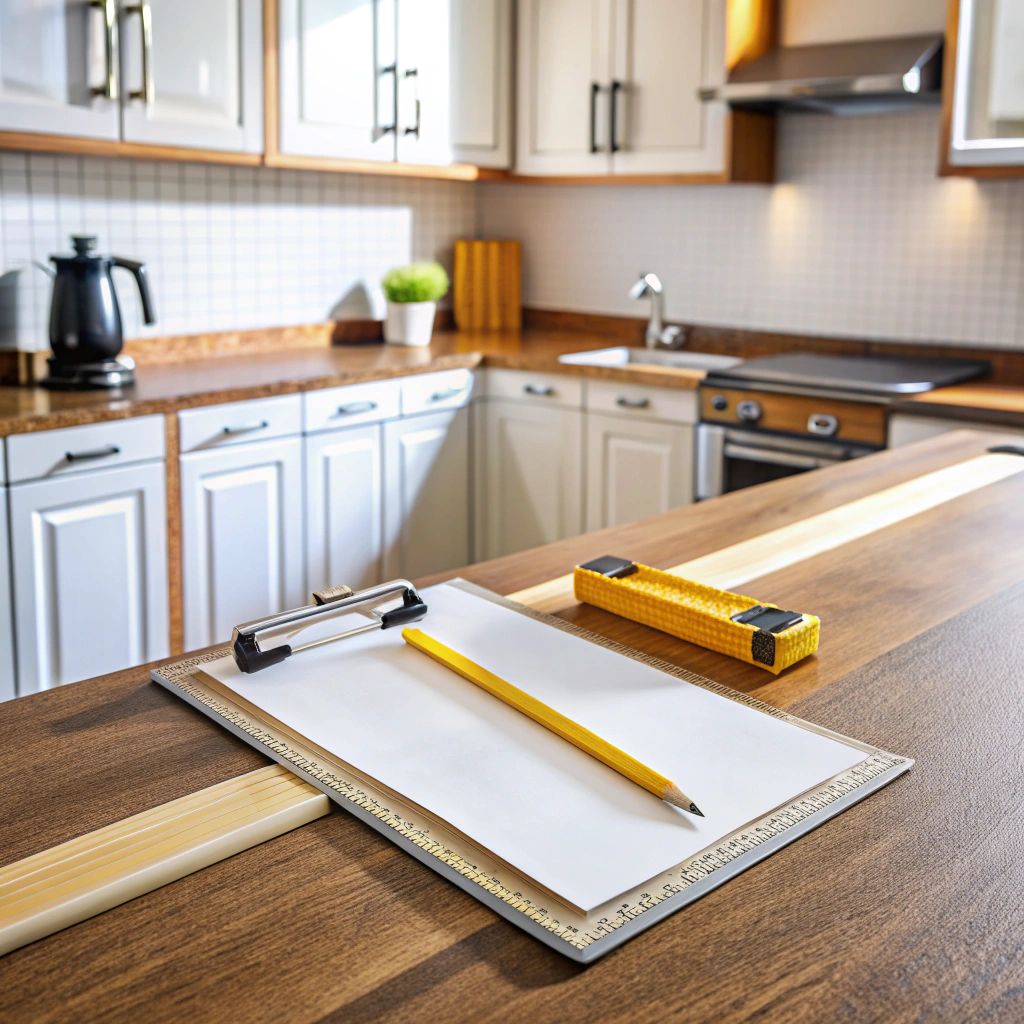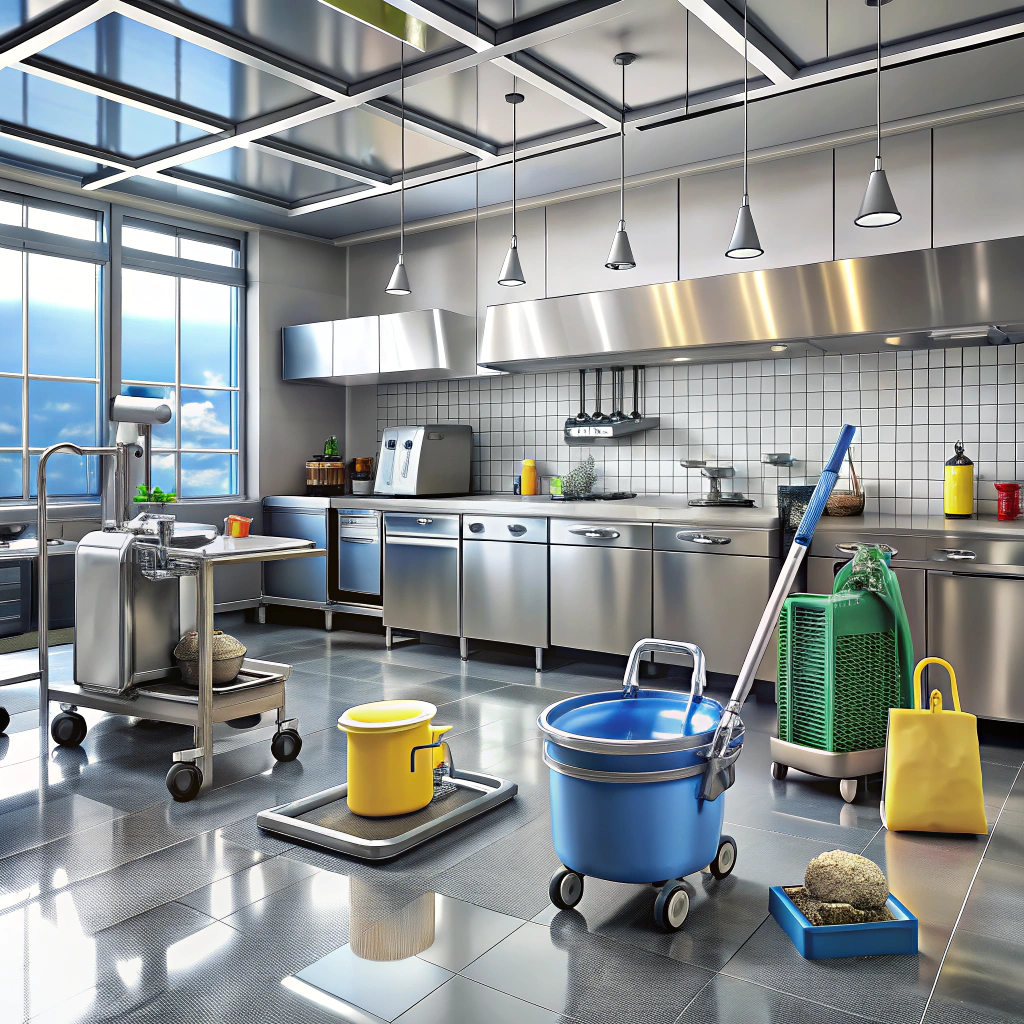Last updated on
Discover the secrets to maintaining a spotless and shiny granite composite kitchen sink with our easy-to-follow cleaning guide.
Granite composite kitchen sinks are a popular choice among homeowners for their durability, sleek appearance, and resistance to stains and scratches. However, just like any other surface in your kitchen, granite composite sinks require regular cleaning to maintain their shine and prevent the buildup of dirt and grime.
In this article, we will guide you through the steps on how to clean your granite composite kitchen sink effectively. So grab your cleaning supplies and let’s get started!
What's Inside
Understanding Granite Sink Material
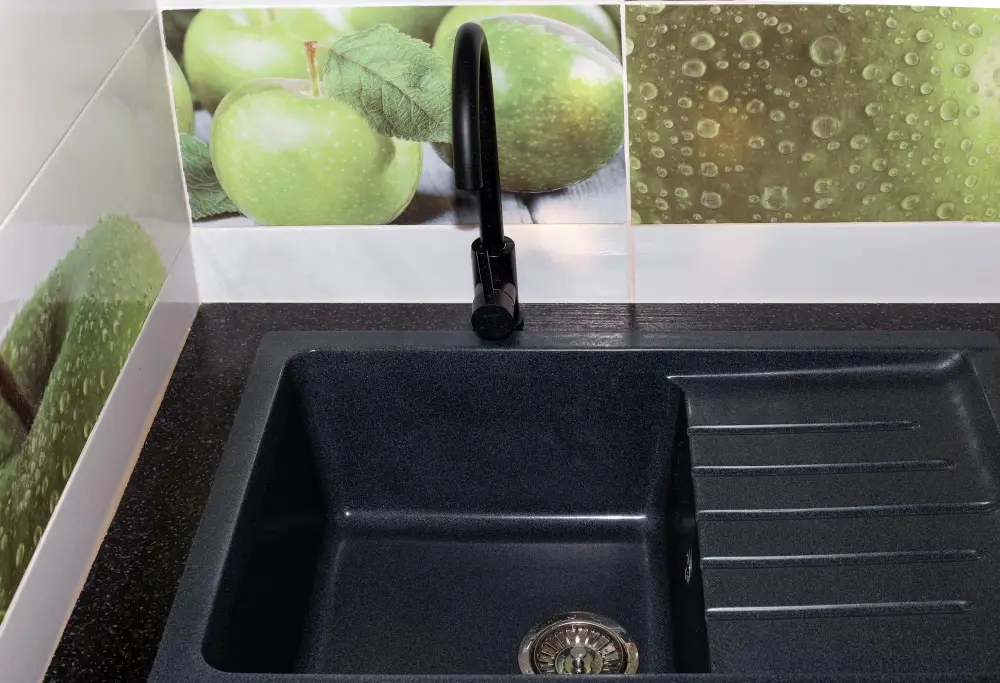
This combination creates a durable, non-porous surface that is resistant to scratches, stains, and heat. The material is also known for its ability to absorb sound and prevent the clanging noise often associated with metal sinks.
The composition of granite composite sinks makes them an ideal choice for busy kitchens as they can withstand heavy use without showing signs of wear or damage. They come in various colors and finishes that mimic natural stone surfaces such as marble or quartz but at a more affordable price point.
It’s important to note that while these types of sinks are highly durable, they still require proper care and maintenance to keep them looking their best over time.
Tools and Materials Needed
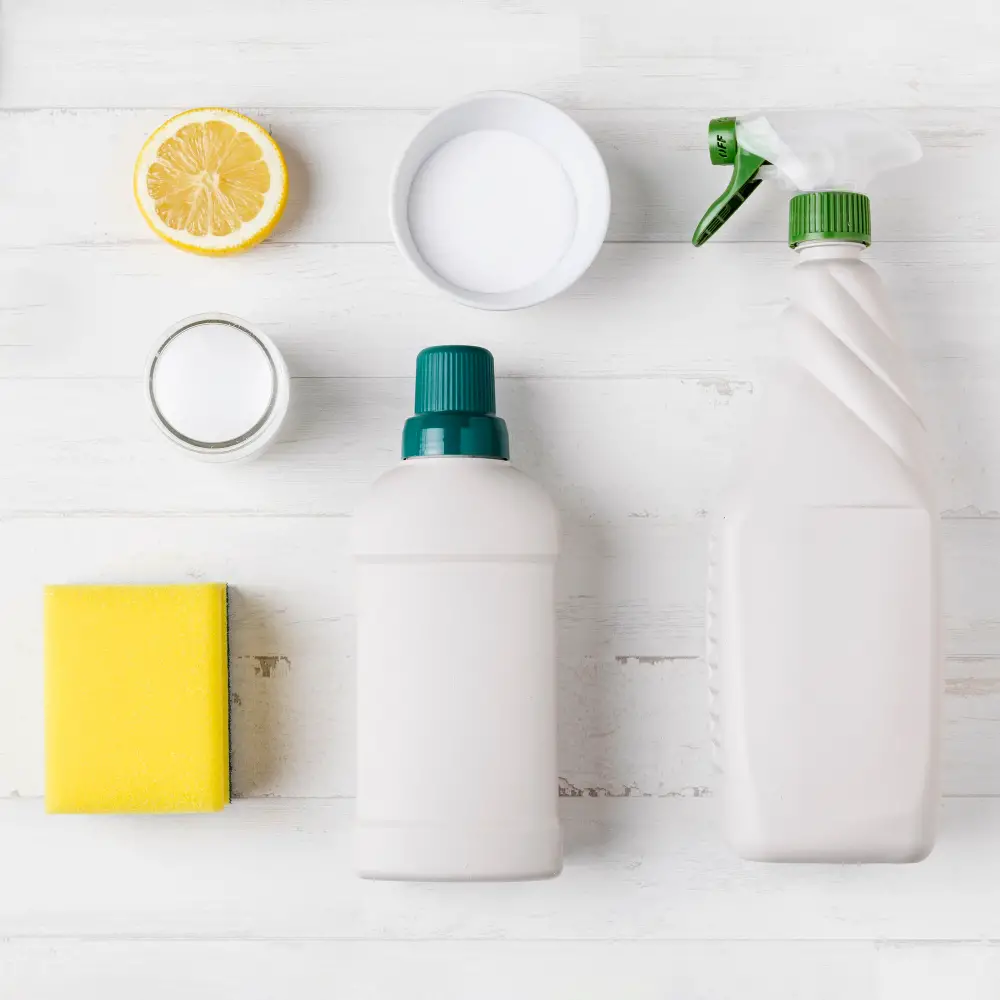
You don’t need any fancy or expensive equipment to clean your granite composite sink; just a few basic items that you probably already have at home.
Here are some of the essential tools and materials needed for cleaning your granite composite kitchen sink:
- Soft-bristled brush or sponge
- Mild dish soap
- Baking soda
- White vinegar
- Microfiber cloth or towel
Make sure to avoid using abrasive sponges, steel wool pads, harsh chemicals, and acidic cleaners as they can damage the surface of your sink.
Daily Cleaning Routine
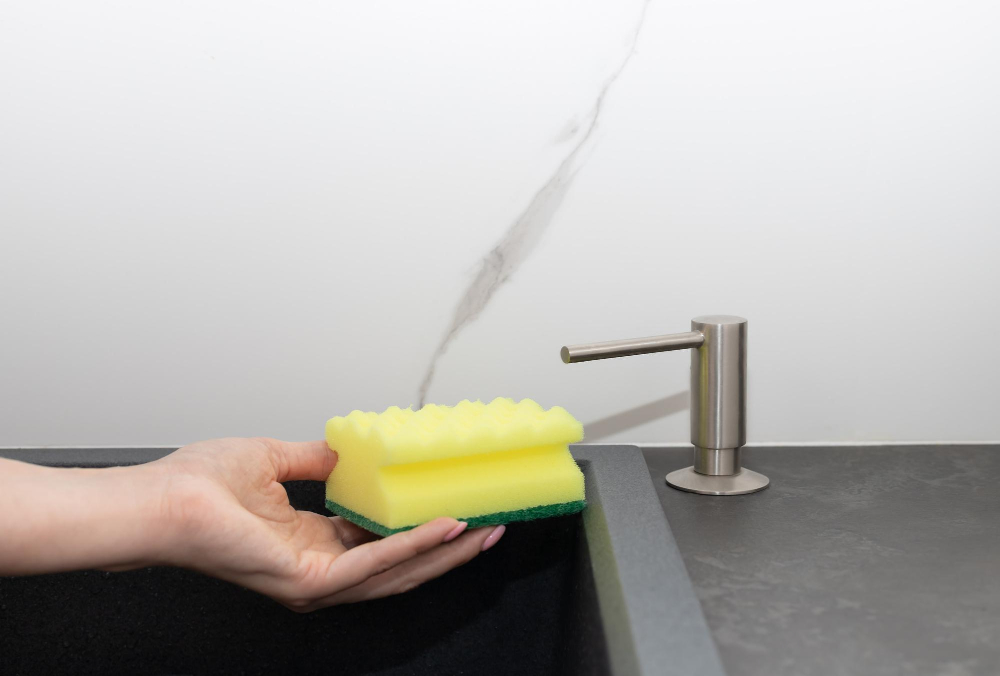
A quick wipe down after each use will prevent the buildup of dirt, grime, and food particles that can cause stains or scratches over time. To clean your sink daily, you’ll need a soft sponge or cloth and a mild dish soap.
Start by rinsing the sink with warm water to remove any loose debris. Then apply a small amount of dish soap onto the sponge or cloth and gently scrub the surface in circular motions.
Be sure to pay extra attention to areas around drains where food particles tend to accumulate.
Once you’ve cleaned all surfaces thoroughly, rinse off any remaining soap residue with warm water before drying it off with a clean towel or microfiber cloth.
Deep Cleaning Process
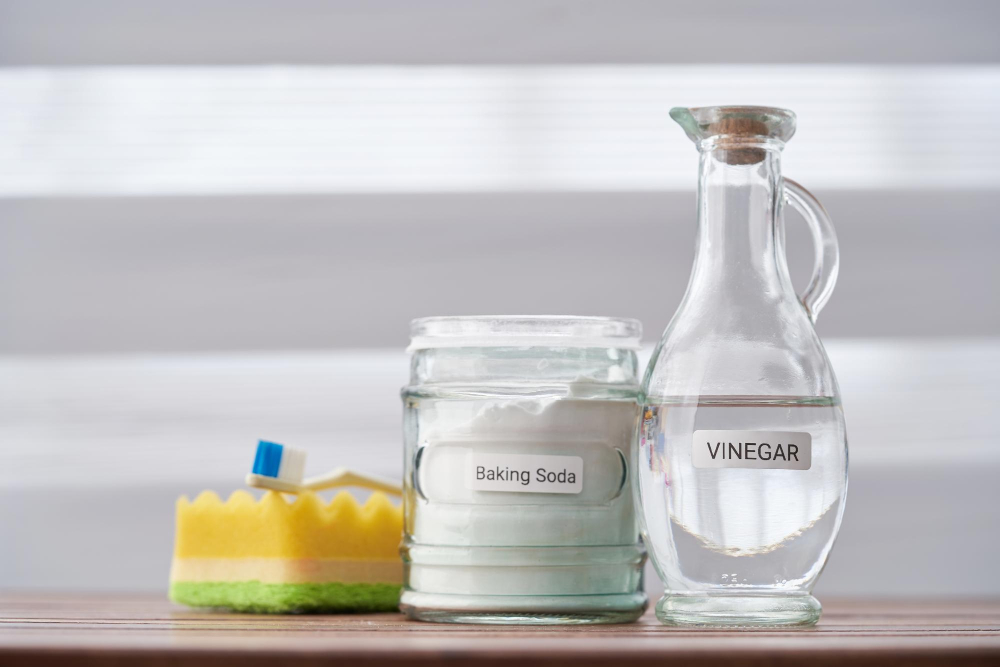
A deep clean will help remove any stubborn stains or buildup that may have accumulated over time.
To start the process, you’ll need some baking soda and white vinegar. Begin by sprinkling baking soda all over the surface of your sink and let it sit for about 10 minutes.
Then, pour some white vinegar onto a soft sponge or cloth and use this to scrub the entire surface of your sink thoroughly.
Be sure to pay extra attention to areas with heavy staining or buildup such as around the drain area or near faucet fixtures. Once you’ve finished scrubbing, rinse off all traces of baking soda and vinegar with warm water.
For an even deeper clean, consider using a specialized granite cleaner designed specifically for composite sinks. These cleaners are formulated not only to remove dirt but also protect against future damage from hard water deposits and mineral buildup.
Removing Stains and Scuff Marks
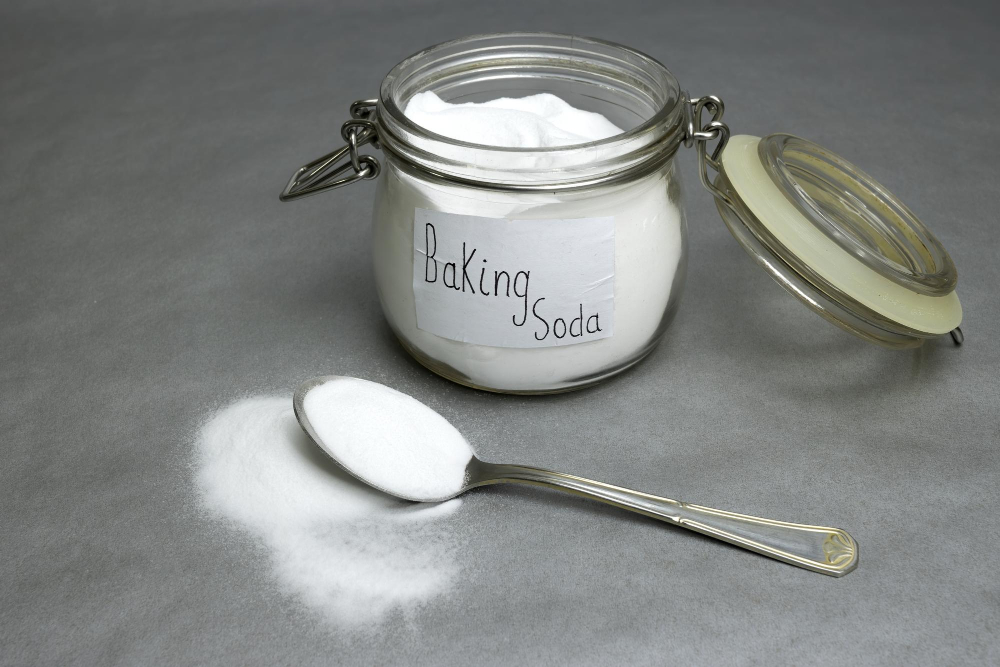
To remove these unsightly blemishes, you’ll need to use a gentle yet effective cleaning solution.
For minor stains or scuffs, start by using a soft sponge or cloth with warm water and mild dish soap. Gently scrub the affected area in circular motions until the stain is removed.
Rinse thoroughly with clean water and dry with a soft towel.
For tougher stains like coffee or red wine spills, mix equal parts baking soda and water to form a paste. Apply the paste directly onto the stain using your fingers or a soft-bristled brush.
Let it sit for 10-15 minutes before rinsing off with warm water.
If you’re dealing with stubborn scuff marks from pots and pans rubbing against your sink’s surface, try using an eraser sponge (also known as magic erasers). Wet the sponge first before gently rubbing it on top of each mark until they disappear completely.
Removing Hard Water Stains and Mineral Deposits
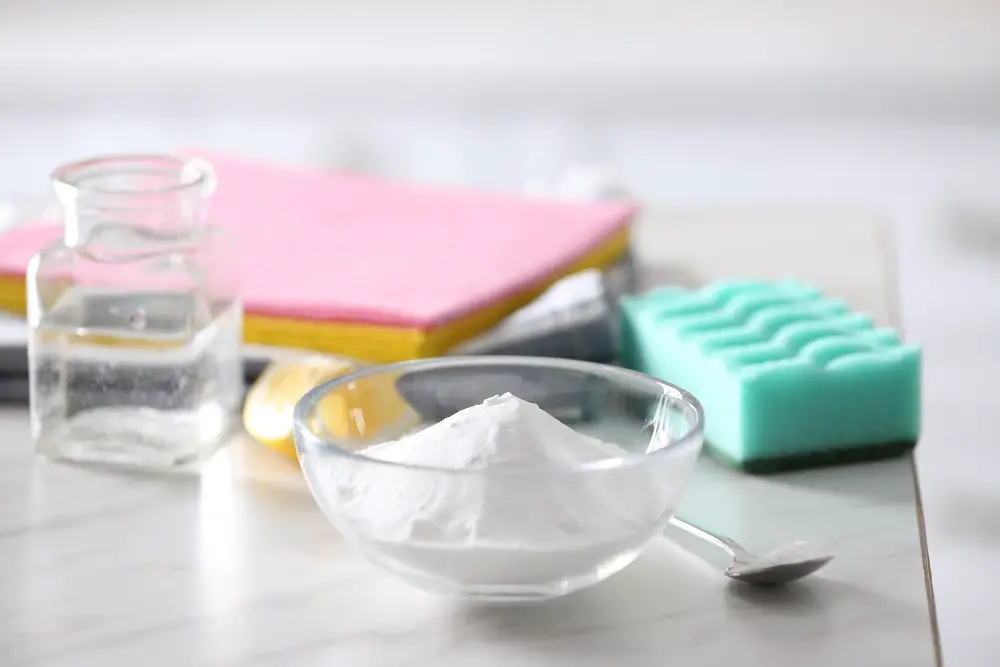
These unsightly marks are caused by the buildup of minerals like calcium, magnesium, and lime in your tap water. Fortunately, there are several ways to remove hard water stains from your sink.
One effective method is to use a mixture of vinegar and baking soda. First, sprinkle some baking soda onto the stained areas of the sink surface.
Then pour white vinegar over it until it starts fizzing up (this reaction helps break down mineral deposits). Let this sit for about 10-15 minutes before scrubbing with a soft-bristled brush or sponge.
Another option is to use lemon juice instead of vinegar as an acidic cleaner that can dissolve hard-water buildup without damaging the surface finish on granite sinks.
Dealing With Limescale Buildup
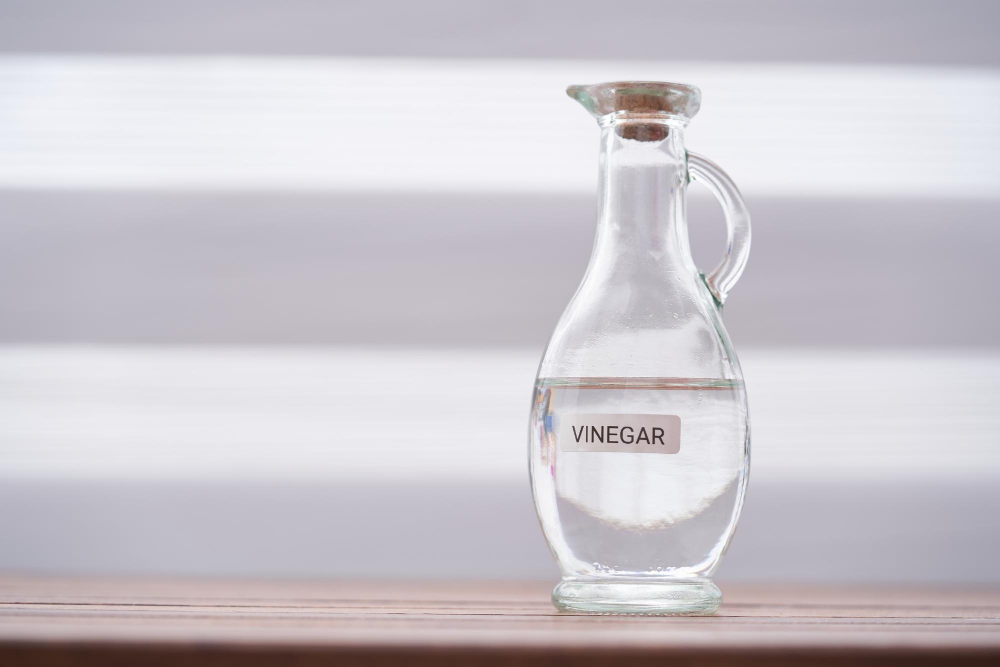
The minerals present in the water can leave behind white or grayish deposits on the sink’s surface, making it look dull and unclean.
To remove limescale buildup from your sink, start by mixing equal parts of white vinegar and water. Soak a clean cloth or sponge into the solution and apply it to the affected areas of your sink.
Let it sit for 10-15 minutes before scrubbing gently with a soft-bristled brush.
If this method doesn’t work effectively, try using baking soda instead of vinegar. Mix three parts baking soda to one part warm water until you have formed a paste-like consistency.
Apply this mixture onto your sink’s surface using circular motions while wearing gloves to protect your hands from scratches caused by abrasive materials.
After applying either solution mentioned above rinse thoroughly with warm soapy water followed by cold running tap-water then dry completely using paper towels or microfiber cloths.
Disinfecting the Sink
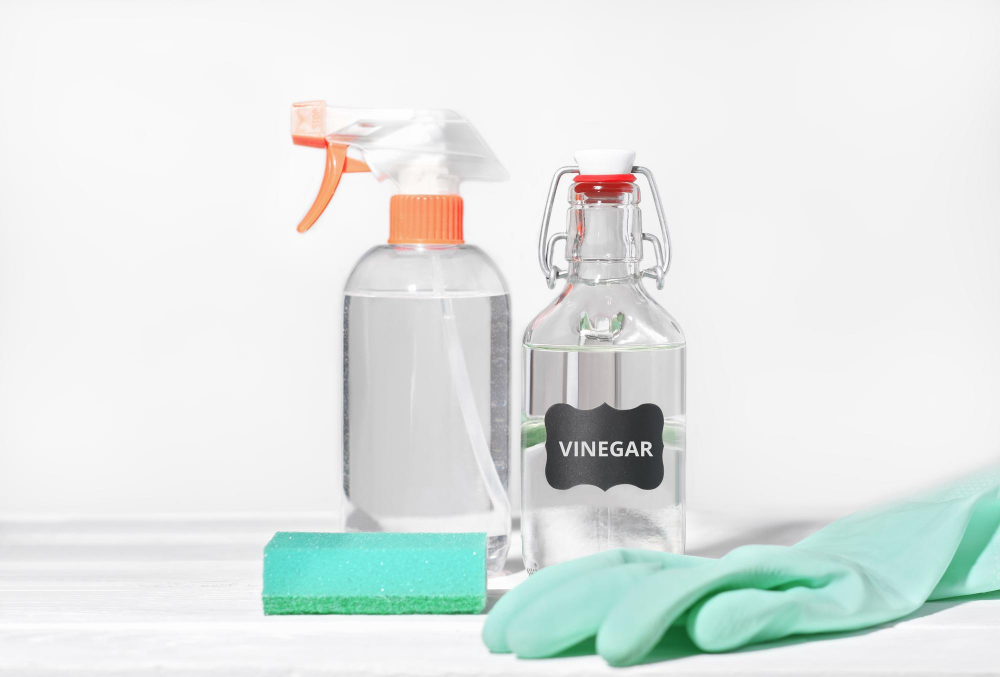
You can use a commercial disinfectant or make your own natural solution using vinegar and water. Simply mix equal parts of white vinegar and water in a spray bottle, then spray the solution onto the sink surface.
Allow it to sit for 10-15 minutes before rinsing with warm water. Alternatively, you can use hydrogen peroxide instead of vinegar for an even more potent cleaning agent.
Remember always to wear gloves when handling any cleaning products or solutions as they may cause skin irritation or allergic reactions in some people.
Preventing Scratches and Damage
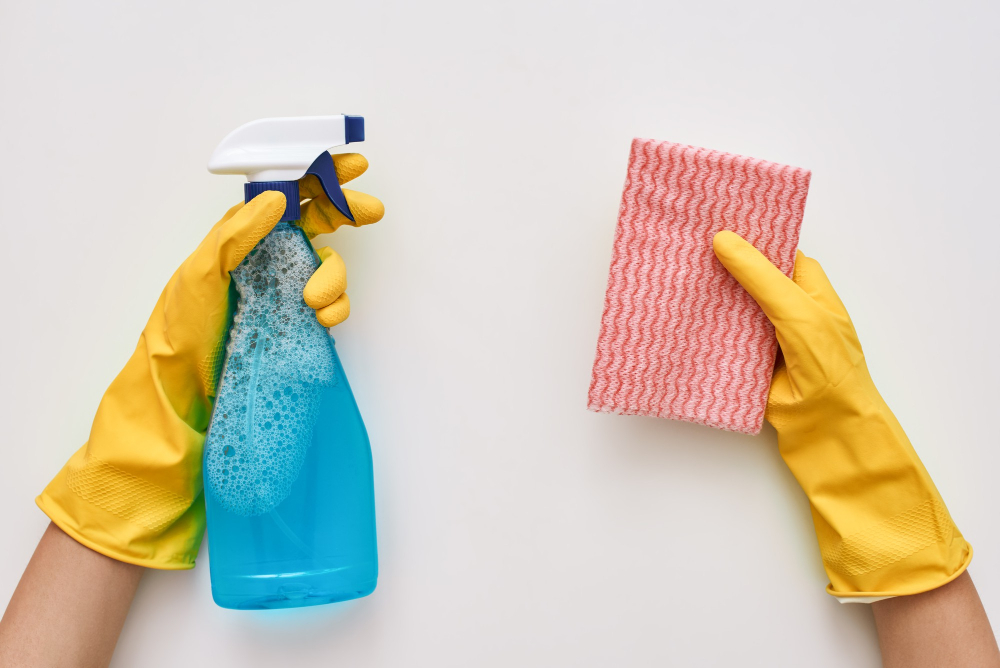
To prevent scratches and damage to your sink, avoid using abrasive cleaners or scrubbers that can scratch the surface. Instead, use a soft sponge or cloth with gentle cleaning solutions.
Another way to prevent scratches is by placing a protective mat at the bottom of your sink before washing dishes. This will help cushion any heavy pots or pans that may accidentally hit the surface.
It’s also important to be mindful of what you put in your sink. Avoid dropping sharp objects like knives directly into the basin as this could cause chips and cracks on its surface.
Avoiding Common Cleaning Mistakes
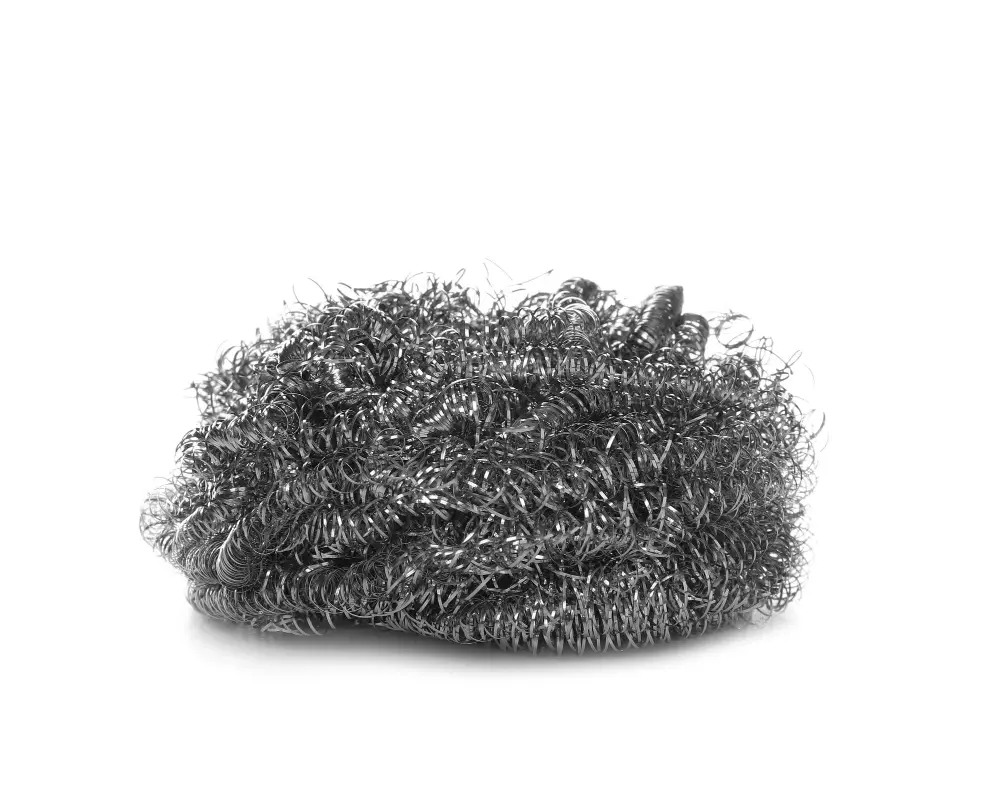
One of the most significant errors is using abrasive cleaners or scrubbers that can scratch and dull the finish. Avoid using steel wool pads, scouring powders, or harsh chemicals like bleach and ammonia.
Another mistake is leaving acidic substances on the sink for too long as they can etch and discolor its surface. Examples of acidic substances include vinegar-based cleaners, lemon juice, tomato sauce or ketchup.
Some homeowners make a mistake by not rinsing their sinks thoroughly after cleaning them with soap or detergent solutions. Soap residue left behind on your sink will attract dirt particles leading to buildup over time.
What Not to Use On Granite Composite Sinks
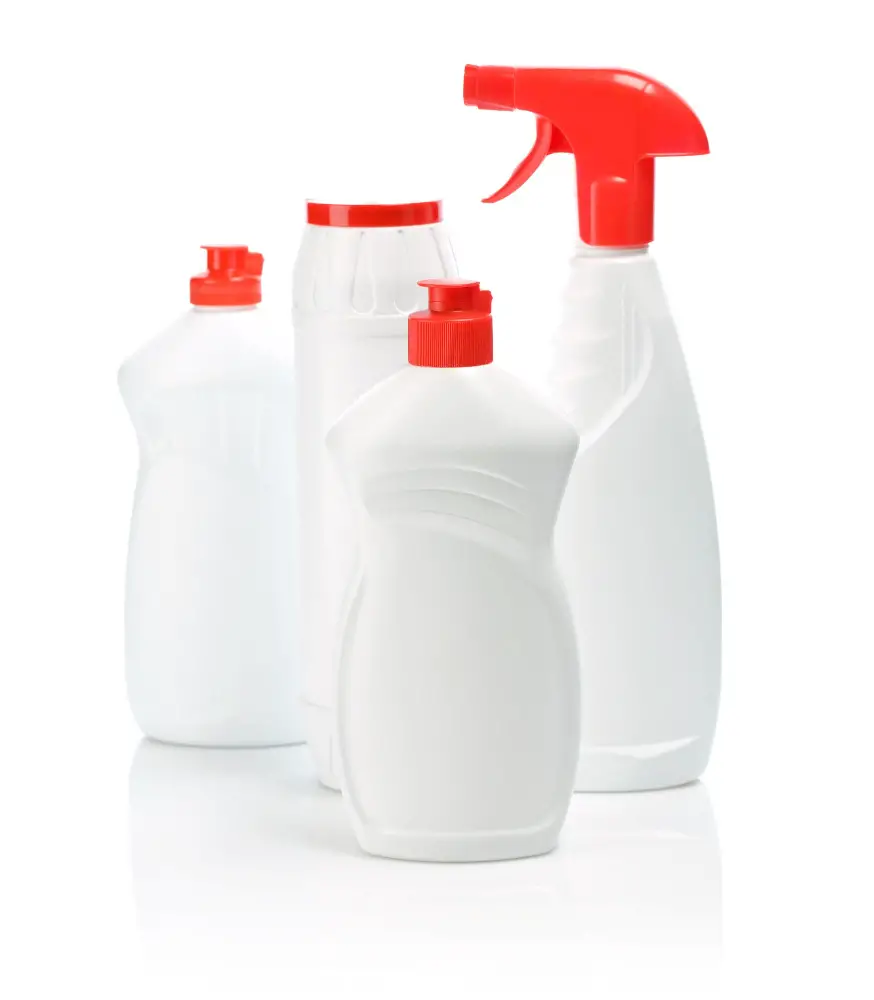
To avoid causing any harm to your sink, it’s important to know what not to use when cleaning it.
Firstly, avoid using abrasive cleaners or scrubbers such as steel wool pads or scouring powders. These can scratch the surface of your sink and cause permanent damage.
Secondly, stay away from acidic cleaners like vinegar or lemon juice. While these may seem like natural alternatives for removing stains and disinfecting surfaces, they can actually dull the finish of your granite composite sink over time.
Lastly, do not use bleach on a regular basis as this could weaken the material over time leading to cracks in some cases. Instead of using harsh chemicals that could potentially damage your sink’s surface; opt for gentle dish soap mixed with warm water instead.
DIY Natural Sink Cleaners
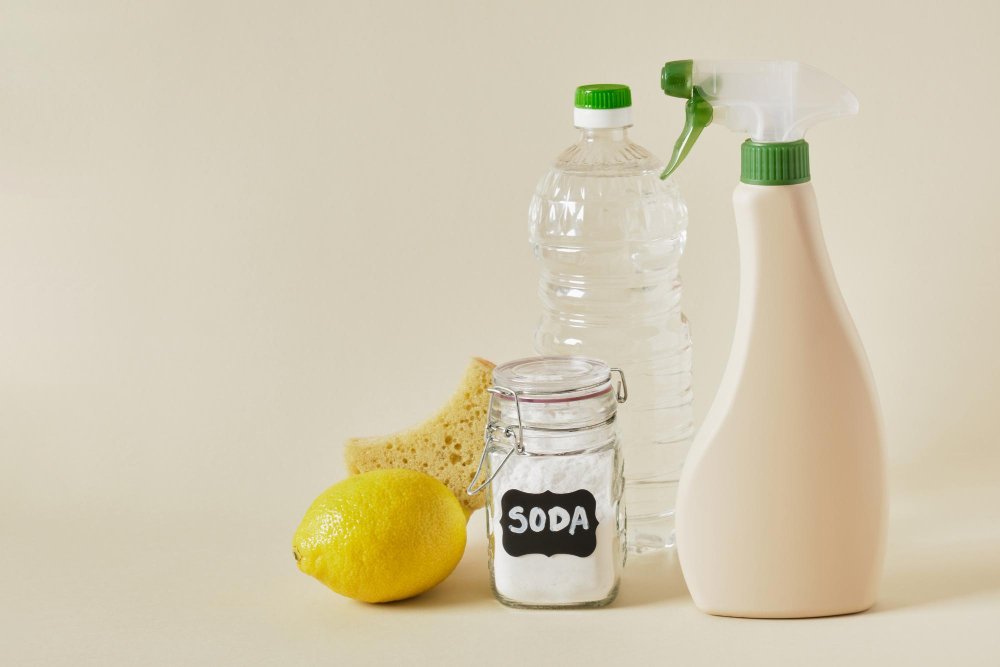
Here are some DIY natural sink cleaners you can try:
1. Baking Soda and Vinegar: Mix equal parts of baking soda and vinegar to form a paste.
Apply the mixture on the surface of your sink using a soft-bristled brush or sponge, then rinse with water.
2. Lemon Juice: Cut a lemon in half and rub it over the surface of your sink, paying extra attention to areas with stains or discoloration.
3. Salt Scrub: Combine salt and dish soap into a thick paste-like consistency before applying it onto the affected area(s).
Use circular motions while scrubbing gently until all dirt is removed from those spots.
4. Hydrogen Peroxide Solution: Mix hydrogen peroxide with water in equal parts before pouring this solution onto any stained areas within your kitchen’s granite composite sinks; let sit for 10-15 minutes before rinsing thoroughly away!
Restoring and Polishing the Sink

Restoring the sink’s luster is not a difficult task. You can easily bring back the sparkle by polishing it with a specialized cleaner or DIY solution.
To restore your sink’s shine, start by cleaning it thoroughly using warm water and mild soap. Once you have removed all dirt and grime from the surface of the sink, dry it completely with a soft cloth.
Next, apply a small amount of granite polish onto another clean cloth or sponge. Rub gently in circular motions over every inch of your kitchen sink until you achieve an even finish.
If you prefer natural solutions for polishing sinks without harsh chemicals that could damage them over time; try mixing baking soda with water to create an effective paste that will remove stains while also leaving behind shiny surfaces on any type of material including granite composites!
Troubleshooting Sink Issues
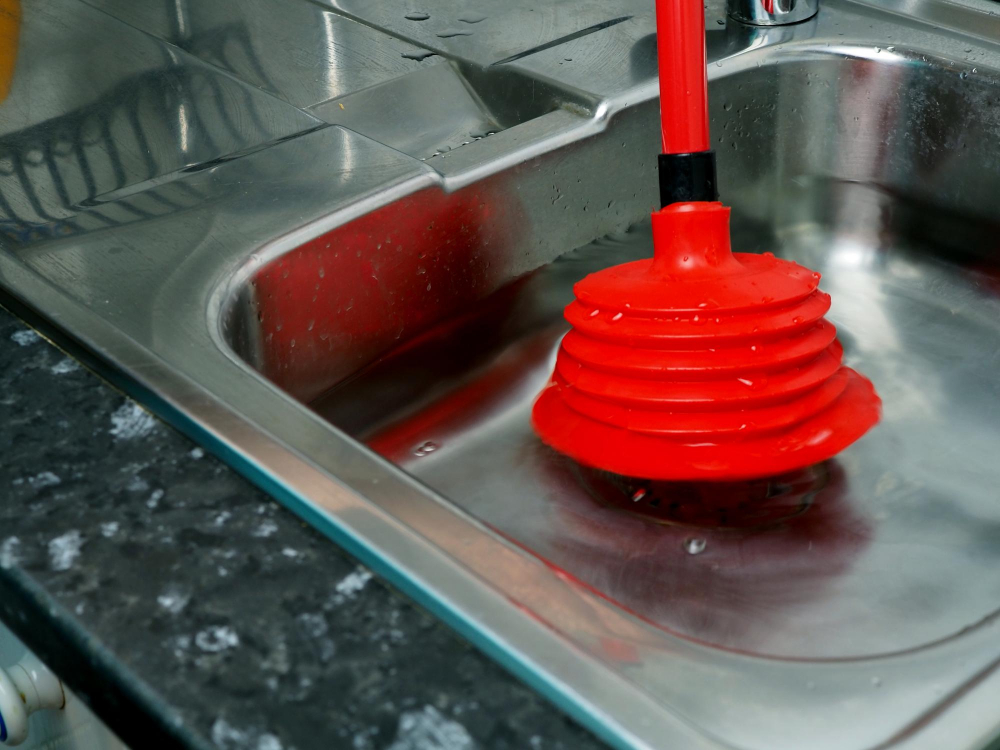
Here are some common problems and how to troubleshoot them:
1. Scratches: While granite composite sinks are durable, they can still scratch if exposed to sharp objects or abrasive cleaners.
To fix minor scratches, use a non-abrasive cleaner and a soft cloth to buff out the scratch in circular motions.
2. Stains: If you notice discoloration on your sink’s surface, it could be due to food stains or hard water deposits that have been left too long without cleaning.
Try using a mixture of baking soda and water or vinegar diluted with water as natural stain removers.
3. Cracks: Although rare, cracks can occur in granite composite sinks due to heavy impact from dropped objects or extreme temperature changes during installation process.
In this case, contact the manufacturer for repair options.
4. Clogged Drain: A clogged drain is another issue that homeowners face frequently. Use plunger first, then try pouring hot boiling water mixed with baking soda down the drain followed by vinegar after 5 minutes interval.
Caring for Your Sink’s Accessories
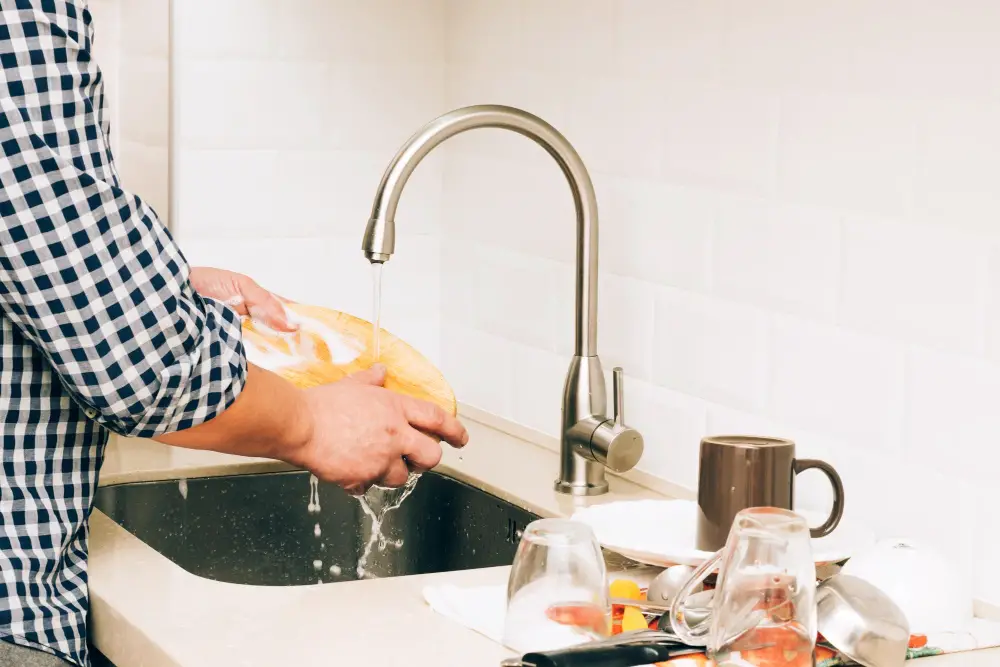
This includes items such as strainers, cutting boards, and soap dispensers. These accessories can accumulate dirt and grime over time if not cleaned properly.
To clean these items, start by removing them from the sink and washing them with warm soapy water. Use a soft-bristled brush or sponge to scrub away any stubborn stains or debris.
For cutting boards specifically, avoid using harsh chemicals or abrasive cleaners that could damage the surface of the board. Instead, use a mixture of baking soda and water to gently scrub away any food residue.
Benefits of Regular Sink Maintenance

By taking care of your sink, you can extend its lifespan and prevent costly repairs or replacements down the line. A well-maintained sink enhances the overall appearance of your kitchen and adds value to your home.
When you regularly clean and disinfect your granite composite sink, you eliminate bacteria buildup that could cause health problems for you and other members of the household. A dirty or stained sink can also be an eyesore in an otherwise beautiful kitchen space.
Moreover, regular cleaning helps to prevent scratches on the surface caused by abrasive materials such as steel wool pads or harsh chemicals like bleach. Scratches not only detract from the look but also make it easier for dirt particles to accumulate over time.
Food Stain Prevention and Removal
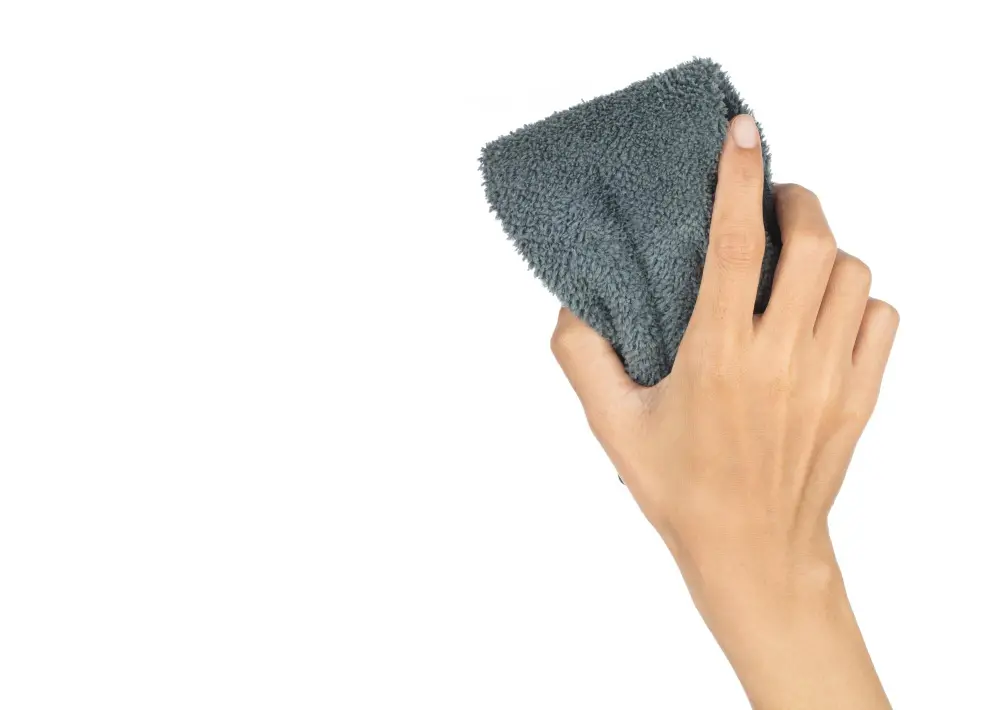
To prevent food stains from setting into your granite composite sink, it’s essential to clean up spills and splatters as soon as possible. Use a soft cloth or sponge with warm water and mild dish soap to wipe away any residue left behind by food particles.
If you notice stubborn food stains on your sink’s surface, try using baking soda mixed with water to create a paste-like consistency. Apply the mixture onto the stained area and let it sit for 10-15 minutes before scrubbing gently with a soft-bristled brush or sponge.
For tougher grease buildup caused by cooking oils or fats, use vinegar diluted in warm water instead of harsh chemicals that can damage your sink’s finish over time. Simply mix equal parts of white vinegar and warm water in a spray bottle then apply directly onto the affected area before wiping away with paper towels.
Tips for Keeping Granite Sinks Clean
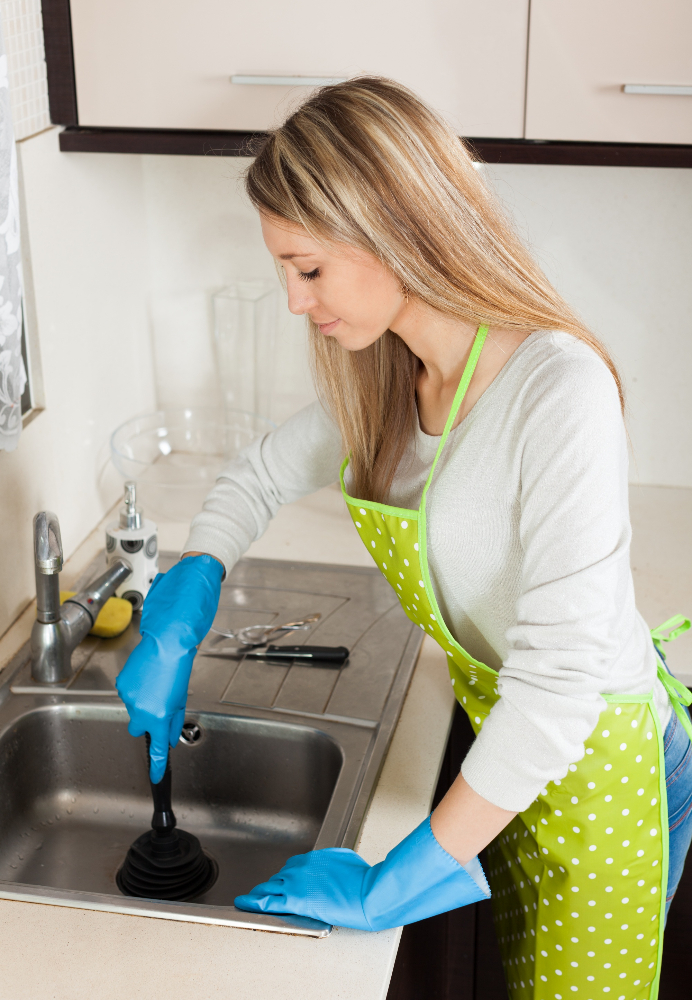
Here are some tips for keeping your sink clean:
1. Wipe the Sink After Each Use: To prevent water spots and stains from forming on the surface of your sink, wipe it down with a soft cloth or sponge after each use.
2. Avoid Leaving Standing Water: Do not leave standing water in the sink as this can lead to mineral buildup and discoloration over time.
3. Use a Sink Grid or Mat: Place a protective grid or mat at the bottom of your granite composite kitchen sink to prevent scratches caused by heavy pots and pans.
4. Clean Regularly: Make sure you clean your granite composite kitchen sinks regularly using mild soap, warm water, vinegar solution or specialized cleaners designed for these types of sinks.
5. Be Gentle When Cleaning: Avoid using abrasive sponges that can scratch the surface of your granite composite kitchen sinks while cleaning them.
FAQ
Can I use magic eraser on granite composite sink?
Yes, you can use a magic eraser on a granite composite sink to remove stains and a 50/50 water-bleach solution for cleaning.
What is the best way to clean a composite sink?
The best way to clean a composite sink is by rinsing the surface with clean water and wiping it down using a clean, lint-free cloth for daily maintenance.
Is it safe to use vinegar and baking soda to clean a granite composite sink?
Yes, it is safe to use vinegar and baking soda to clean a granite composite sink.
How can I remove stubborn stains from a granite composite sink without damaging the surface?
To remove stubborn stains from a granite composite sink without damaging the surface, use a gentle cleaner like baking soda mixed with water to form a paste and softly scrub the stains with a non-abrasive sponge or cloth.
What are some effective eco-friendly cleaning solutions for maintaining a granite composite kitchen sink?
Effective eco-friendly cleaning solutions for maintaining a granite composite kitchen sink include using a mild detergent, warm water, and soft cloth or a baking soda paste with a non-abrasive sponge.
